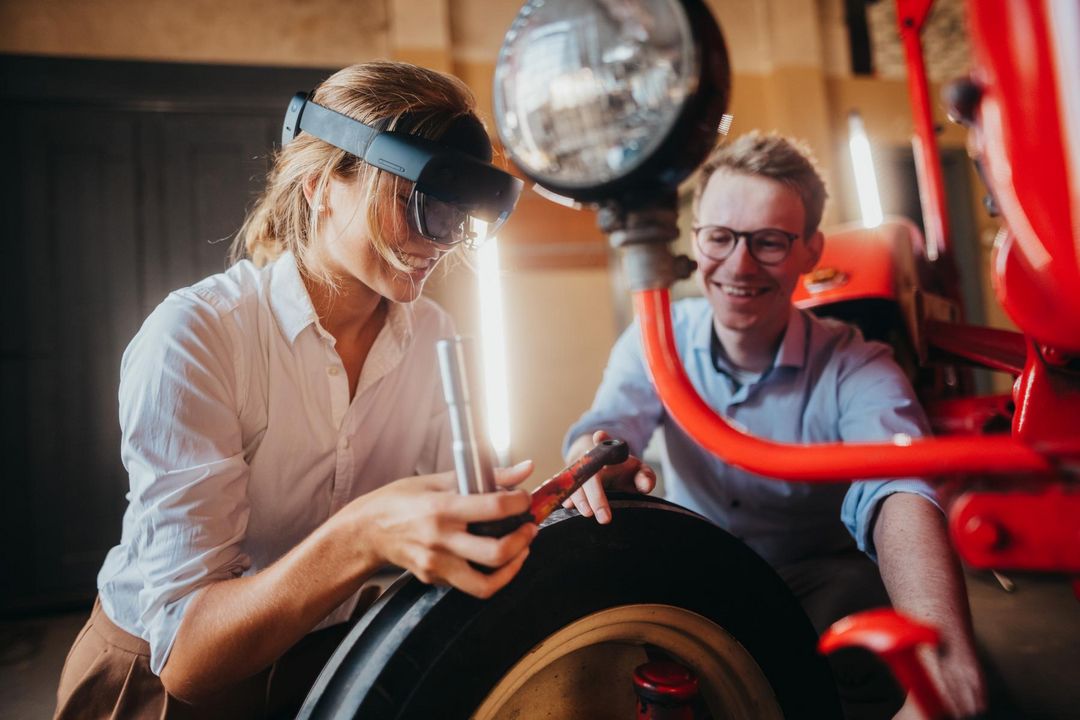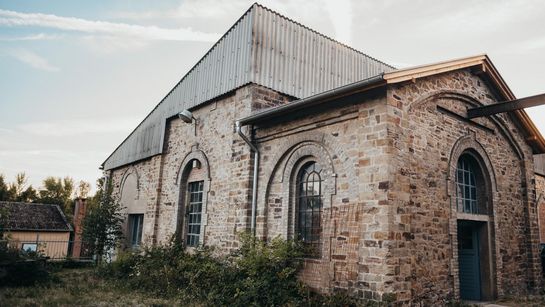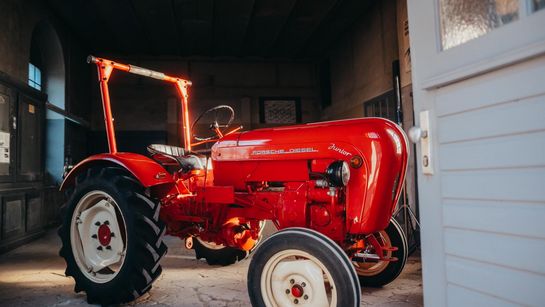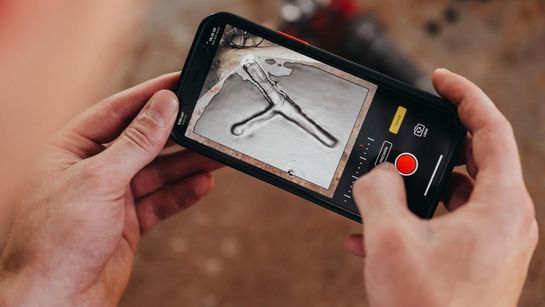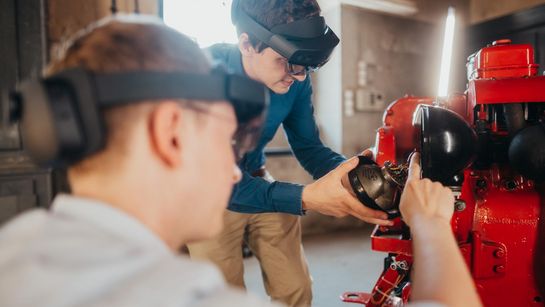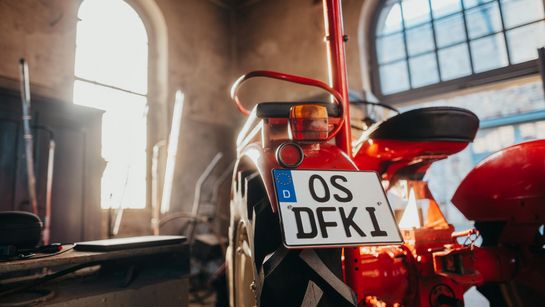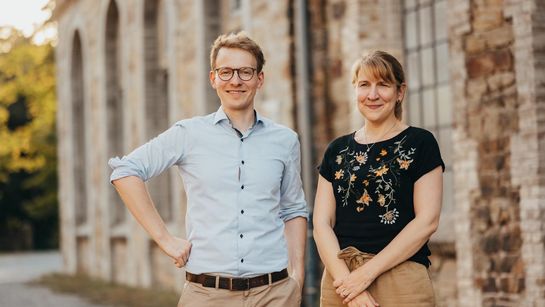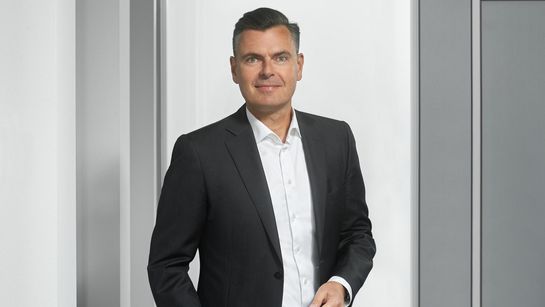150 years ago, coals were crushed, cleaned, and sorted here. Recently, the MIK building on the site of the former coal mine located in the UNESCO nature park TERRA.vita has been serving researchers from the DFKI in Osnabrück as a workshop for new technologies. Results from current DFKI projects will be incorporated into demonstrators for the public, conveying the impact of artificial intelligence (AI), Industry 4.0 and augmented reality (AR) on industrial ecosystems.
To kick things off, a repair will be demonstrated on the vintage tractor on three opening days. The first interactive demonstration will take place on Sunday, Sept. 4, from 11 a.m. to 3 p.m., as part of this year's "Anheizertag and Rail & Street Food Festival at Piesberg." Further dates are Sept. 18 (11 a.m. to 3 p.m.) and Nov. 2 (11 a.m. to 2 p.m.). In three steps, starting with a broken component and moving on to refurbishment and assembly, the researchers will present technologies that are used in an industrial process chain. Visitors are also welcome to lend a hand. Using a tablet, they can scan objects lying around, for example a tractor steering knuckle, to generate a digital model of it. Based on these data, AI can detect damages and propose possible solutions. At a next station, they learn how a 3D printing process can be used to rebuild defective metal parts. Afterwards, they look at the tractor through AR glasses. Virtual elements in the room become visible and the viewers are guided through the insertion of a light bulb.
The tractor is a suitable object for demonstrating how existing elements, in this case old things, can be repaired with new tools and how people outside the profession can be enabled to fix malfunctions themselves. In an everyday scenario involving large machines in industrial plants, saving time, for example through the early automatic detection of malfunctions or a more efficient remote customer service, means saving money. The information systems researchers at the DFKI are interested in how the value creation of companies can be improved using modern methods, for example by providing an after-sales reparation service.
Experiencing and shaping science
In addition to further demonstrators, there are also plans for common events between MIK and DFKI. Dr. Vera Hierholzer, Managing Director of the MIK: "In its exhibitions, the MIK links historical contexts with current issues and new ideas for the future around the theme triangle of humans - nature - economy. The cooperation with the DFKI is a perfect fit. AI algorithms and virtual applications are shaping today's and tomorrow's economy. These developments should be made understandable for our visitors."
Prof. Dr. Oliver Thomas, head of the research department, adds, "MIK is a great regional player. Within the scope of our cooperation, we want to present high-tech content from science in new formats. Thus, new technologies and AI shall be vividly explained and brought closer to the public."
Prospectively, the DFKI is also aiming for forms of citizen science. A dialogue about research with the public is desired: "We will display our research, check how resilient it is, and improve it. After all, whatever visitors of the museum may notice in their interaction with the technologies will also be of importance in companies – the center of our research."
DFKI at MIK and CIC
With its presence at MIK, the DFKI Niedersachsen is settling into another historic building in the Osnabrück area. Next year, both Osnabrück research departments will move into the emerging Coppenrath INNOVATION CENTRE (CIC) in the old roundhouse as anchor tenants. A place for SMEs and professional users will be created there with further education in the fields of AI, AI prototyping, financing advice and networking events, while the former coal washing plant will become a platform for social participation: "Together with the MIK, we now want to apply for funding enabling us to transform the coal washing plant into a real meeting place between science and the public," explains Oliver Thomas.

